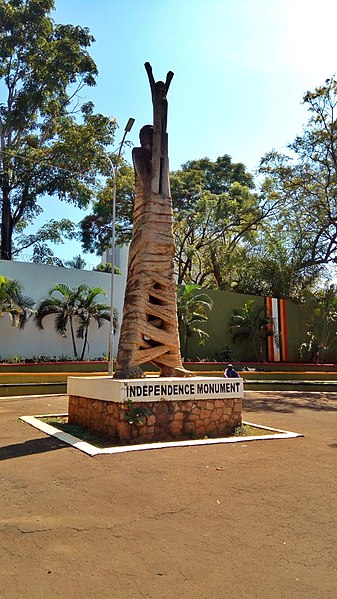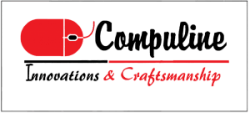The 2021 Education Review Commission Should Redeem Uganda’s Education!

Ugandans will soon see another round of policy recommendations by another Education Policy Review Commission (EPRC) appointed in 2021, headed by Hon Amanya Mushega one of the country’s education architects’ in the 1990s when the monumental Government White Paper on Education (GWE) unleashed fundamental ideals and principles to democratise education in all its forms. Many individuals and organisations should have submitted pertinent views to the EPRC by close of the deadline on 28 Feb 2022, and I trust that those views and opinions will receive due consideration. I implore the Commission to redeem Uganda’s education. Make bold recommendations to democratise and broaden the vision of education. I request the Commission not to repeat the history of shrinking our education to ‘schooling’. The lessons from the processes and outcomes of your predecessor commissions (eg. Phelps Stokes Commission, Castle Education Commission and Prof Senteza Education Policy Review Commission) should haunt you enough to do a job that befits the demands and aspirations of 21st century Ugandans and their children’s children.
‘Decolonizing and Africanizing’ Education: Get beyond the Slogans
Sloganeering is one tool that has not been used for a good purpose by education policy decision makers at different levels. The rhetoric of decolonizing and Africanizing Uganda’s education is, for example, often used to make a point about ‘how bad colonialism’ was and is to our ‘independence and integrity’ as African people. Not many times, do such sloganeering tendencies get deeper into the drivers and root causes of endemic exclusion of millions of Ugandans from accessing good quality education and training opportunities. Often one hears public rhetoric about vocationalisation of education, education with production, teaching in mother tongue and so many many such slogans. I argue the EPRC to identify and use the right tools of analysis to make rational policy recommendations that are free from emotions and political gimmicks. Systems thinking would be a great paradigm if I could be allowed to make a suggestion for some good ways of understanding wicked social problems such as Uganda’s deteriorating education.
Redeem Uganda’s Education System
From an adult and lifelong learning perspective, I implore the EPRC to diligently exercise its mandate to ensure that its suggestions and recommendations aim to broaden and widen the scope, structure, system and practice of education to meet the education and learning needs of all children, youths and adults in Uganda.
While local, regional and global trends in education, cultural, scientific, technology, political and economic fields are compelling all nations to expand and widen flexible initial and further education opportunities and facilities for youths and adults to constantly learn at their own pace for personal and societal development, our education system is predominantly a ‘schooling machine’ designed to serve ‘full-time learners’ who are assumed to be either children or dependent individuals with no other social, political or economic roles in our society. Yet we are all aware that our country has thousands and millions of prospective and enrolled learners with multiple identities such as parents, wives, husbands, traders, farmers, musicians, artists, church leaders, civil servants, parliamentarians and councillors.
Many of the learners in the categories mentioned above and more are constantly struggling to navigate the restrictive ‘schooling culture’ of our education system as they juggle their social roles including the fundamental ‘tax paying’ citizenry obligations. Besides the financial burden of paying unregulated and randomly determined fees, they endure poor teaching-learning environments which do not match their needs, interests and characteristics as independent and self-directing individuals.
While thousands are struggling to cope with the poor learning environments in countless registered and unregistered institutions across the country, it is evident that there is a significant section of Ugandans who are excluded from either enrolling for quality initial education services or pursuing further education and training on account of their age and / or past schooling performance. In this category are non-literate adult Ugandans (18 years & above) who missed out on formal schooling in their childhood and those who did not successfully complete primary and secondary education.
The available education options for such Ugandans include adult basic education (ABE) programmes by NGOs, the Ministry of Gender and other state and non-state actors. The good intentions of these ABE programmes notwithstanding, their effectiveness and outcomes in relation to access and quality as well as their configuration in the context of lifelong learning have been questioned by several evaluations and reviews (see MGLSD,2007; Okech et al, 1999; Okech et al, 2001; Oxenham, et al 2002; Rogers, et al, 2008). The media stories of senior citizens and other older Ugandans who brave the humiliation to sit PLE and O level examinations under conditions that are designed for children illustrate the structural obstacles that they face in their crave to pursue desired further education and training.
It is evident that the state of education and training for youths and adults in Uganda is deficient and far below the expectations of not only the Education 2030 Framework for Action, UNESCO Recommendations on the development of adult education in 1975 /2015, the Belem Framework for Action 2010 but also Uganda’s constitution of 1995, National Development Plan III and the NRM’s manifesto.
For years, several writers and commentators have delineated the issues and concerns calling for public policy action but in vain (see Bananuka, et al 2019; MGLSD, 2012; MGLSD, 2015; MoE, 1992; Jjuuko, 2021; Jjuuko, 2012; Jjuuko, 2007; Jjuuko et al, 2007; Openjuru 2016). There is no pragmatic inclusive policy framework to guide and regulate the planning, implementation, monitoring and evaluation of ALE services in Uganda. The political, technical and administrative responsibilities for different components are fragmented across various ministries and departments without clear coordination, partnership and collaboration mandates. Overall, the operating environment is not enabling enough to facilitate access to quality education and training services by the majority of those who urgently need knowledge and skills to improve their livelihoods and to live a dignified life.
Renew the 1992 GWE policy positions to democratise education
I appeal to the EPRC to critically consider the 1992 Government White Paper on Education policy positions under chapter nine on Democratisation of Education with a focus to review and renew the following (direct extract):
- Making extraordinary efforts in the following areas namely (i) Education for Women, (ii) Special Education for PWDs, (iii) Education for Gifted Children, (iv) Education for Disadvantaged groups, (v) Education for Karamoja, (vi) Non-formal and Adult Education, (vii) Post-Literacy Adult Education, (viii) Basic Education for National Development, (ix). Eradication of Illiteracy,(x). Apprenticeship Education for the Youth, (xi) Continuing and Lifelong Education, (xiii). Distance Education and the Mass Media;
- Addressing the limited scope of Non-formal and Adult Education by encompassing the following objectives namely (i) Attainment of permanent and development functional literacy and numeracy, (ii) Acquisition of functional skills relevant to life in the community, (iii) Development of national awareness of the individuals; and (iv) Continued learning while-at-work and at home;
- Consolidation of present infrastructure and expansion of responsibilities of the Ministry of Education and Sports to cover formal as well as non-formal and adult education leading to increased access to education by all citizen;
- Creation of a directorate for Adult and Lifelong learning.
Finally, I state my proposal to the EPRC to Recognise and Streamline Adult Education & Learning (ALE) in the Structure, System and Practice of Education in Uganda.
About the Author
Robert Jjuuko is a Uganda Researcher, Educationist & Consultant | robert@adultslearnuganda.org | WhatsApp + 256 787 66 70 43
References
- Bananuka, T. H., & Katahoire, A. R. (2019). The struggle for Adult learning and Education policy: a Ugandan experience. Commonwealth of Learning (COL).
- Jjuuko, R. (2021). Uganda’s Integrated Community Learning for Wealth Creation (ICOLEW) architecture: triggering public financing of popular adult learning and education. DVV International
- Jjuuko, R. (2012). Youth and adult learning in Uganda: Key policy issues and concerns. Conference proceedings. Uganda Adult Education Network. Kampala
- Jjuuko, R. (2007). Reflection on adult education priorities in Uganda: if there was enough money for adult education, what would be priorities. Journal of Adult Education and Development, 68.
- Jjuuko, R., Bugembe, R., Nyakato, J., & Kasozi, M. (2007). A desk study of public policy frameworks related to adult learning. Uganda Adult Education Network
- MGLSD. (2015). Third global report on adult learning and education: monitoring survey results for Uganda. UNESCO Institute for Lifelong Learning. Retrieved 11 6, 2020, from https://uil.unesco.org/i/doc/adult-education/grale-3/national-reports/uganda.pdf
- MGLSD. (2012). Follow-up of CONFINTEA VI: national progress report submitted by the Government of Uganda. UNESCO Institute for Lifelong Learning. Retrieved 11 6, 2020, from Confintea report 2012 https://uil.unesco.org/fileadmin/download/en/nationalreports/africa/Uganda.pdf
- MGLSD. (2007). Process review of the functional adult literacy programme in Uganda 2002-Ministry of Gender, Labour and Social Development.
- MoES. (1992). Government white paper on education review commission report. Ministry of Education and Sports.
- NPA. (2020). Third national development plan (NDP III) 2020/21-2024/25. National Planning Authority. Retrieved 11 12, 2020, from www.npa.go.ug/wpcontent/uploads/2020/08/NDPIIIFinale_Compressed.pdf
- Okech, A., Carr-Hill, R. A., Katahoire, A. R., Kakooza, T., & Ndidde, A. N. (1999). Report of evaluation on the functional adult literacy programme in Uganda 1999. Ministry of Gender, Labour and Social Development.
- Okech, A., Carr-Hill, R. A., Katahoire, A. R., Kakooza, T., Ndidde, A. N., & Oxenham, J. (2001). Adult literacy programs in Uganda. World Bank.
- Openjuru, G. L. (2016). Older adult education in Uganda. In B. Findsen & M. Formosa (Eds.), International perspectives on older adult education: lifelong learning book series 22. Springer International Publishing.
- Oxenham, J., Diallo, A. H., Katahoire, A. R., Mwangi, A. P., & Sall, O. (2002). Skills and literacy training for better livelihoods: a review of approaches and experiences. Washington. The World Bank.
- Rogers, A., Openjuru, G., Busingye, J., & Nampijja, D. (2008). Report of consultancy on functional adult literacy programme in Kalangala and Buvuma Islands provided by the Government of Uganda Ministry of Gender, Labour and Social Development and supported by ICEIDA.
